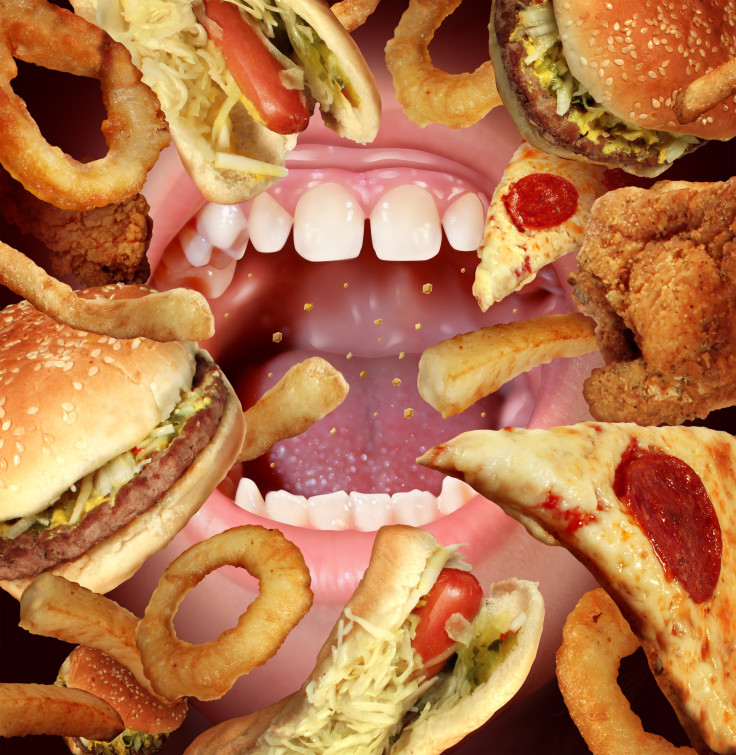High-Fat Diet May Convince Us To Overeat By Wreaking Havoc On Our Gut Bacteria

It seems that our taste buds aren’t the only thing that goes haywire in the presence of a juicy cheeseburger or scoop of ice cream.
According to an animal study to be presented this week at the Annual Meeting of the Society for the Study of Ingestive Behavior (SSIB 2015), diets high in fat may radically change the native population of microbes in the gut, which in turn may interfere with the brain’s ability to stop the body from overeating.
The authors treated the rats in their study to one of two meal plans: a regular diet with a daily fat content of about six percent and a sinful smorgasbord fit for a whiskered king that clocked in at a whopping 35 percent fat. They then, apparently without a hint of guilt, dissected the rats and examined their guts and brain, finding that there were distinctive differences between the two groups.
“When we start feeding the rats a different diet, there is an immediate effect. Suddenly, different nutrients are changing the microenvironment in the gut and some bacteria begin to overpopulate. Some sensitive bacteria begin to die and some populations may even vanish,” said lead Dr. Krzysztof Czaja, associate professor of neuroanatomy at the University of Georgia College of Veterinary Medicine, in a statement. “So, introducing a significant change in the gut microenvironment triggers a cascade of events that leads to this population switch."
They also found that there was noticeable changes along certain neural pathways in the rats made obese by the high fat diet, changes that may explain why obesity is notoriously difficult to combat. "When we switch the rats to a high fat diet, it reorganizes brain circuits," Czaja said. "The brain is changed by eating unbalanced foods. It induces inflammation in the brain regions responsible for feeding behavior. Those reorganized circuits and inflammation may alter satiety signaling."
There’s a steady base of evidence showing that our digestive system is uniquely tethered to the brain and nervous system through not only neural but hormonal connections, a so-called gut-brain axis. This latest study, though only looking at rats, lends support to the theory that our gut microbes play a large role in helping translate messages between the two areas, and that disturbing the gut’s feng shui can have serious repercussions on the brain.
As the authors note, it’s been known for quite some time that overeating contributes heavily to the emergence of obesity; and while there’s other research showing that unhealthy foods high in sugar can trigger an addictive compulsion in the brain to keep indulging, their study points to the possibility that overeating is partially a matter of our fullness meters being unknowingly broken by the abundance of fat in our diets.
Czaja is careful to add that their research only illuminates part of the complex puzzle surrounding obesity and dieting habits. "All of the components and receptors in our body are interconnected and should work in harmony. There is not a single receptor responsible for huge physiological outcomes," he said.
The authors hope to further their research by examining whether the changes in gut bacteria are permanent or can be reversed.
Source: Czaja K, Vaughn AC, Dilorenzo PM, et al. Diet-induced obesity is associated with a change in the intestinal microbiota, activation of microglia, and reorganization of the nucleus of the solitary tract. SSIB 2015. 2015.



























